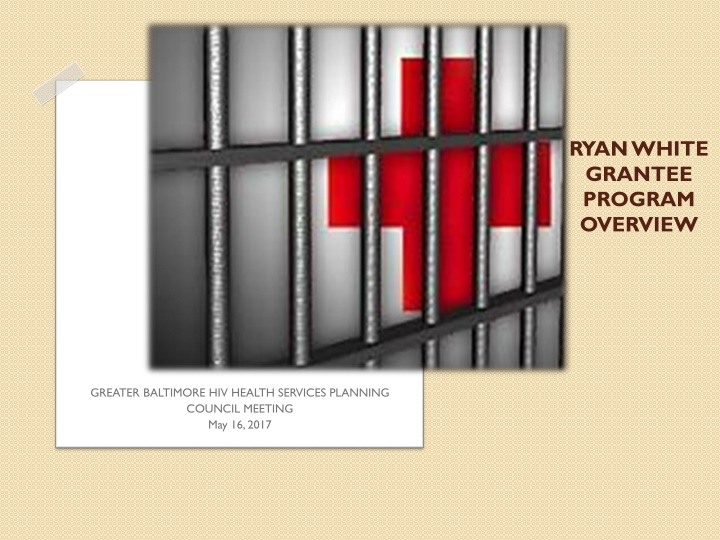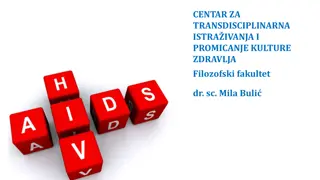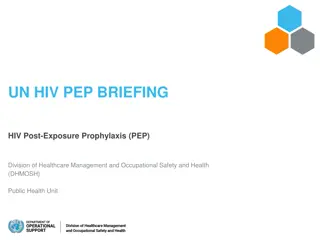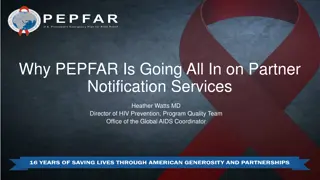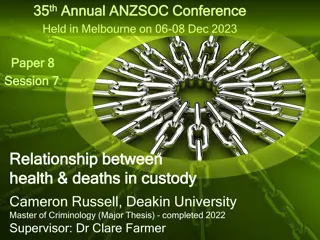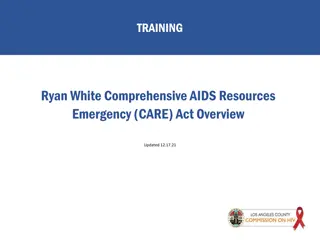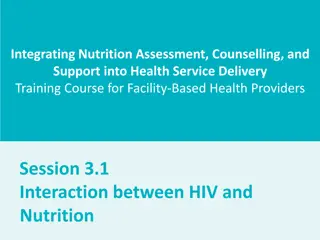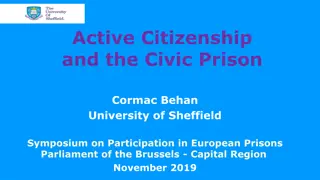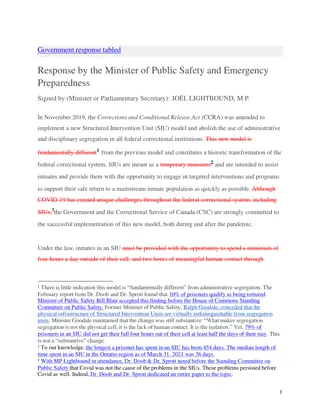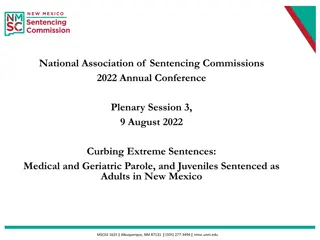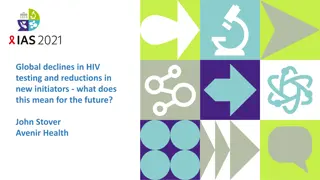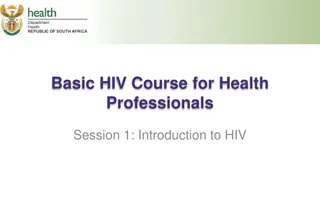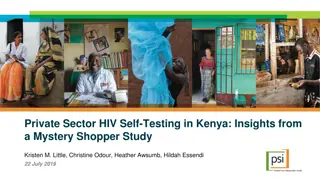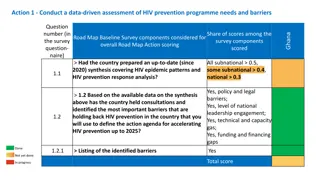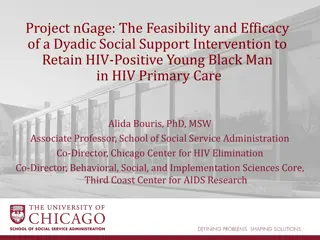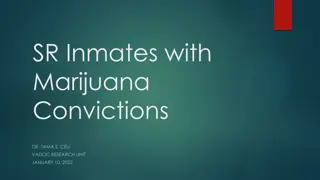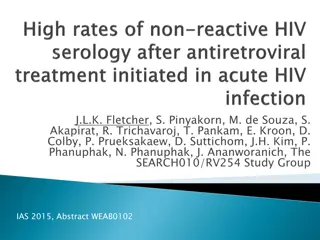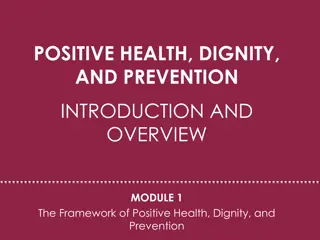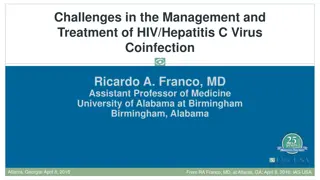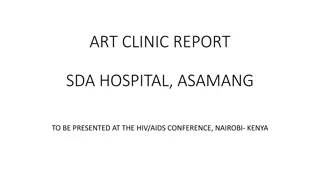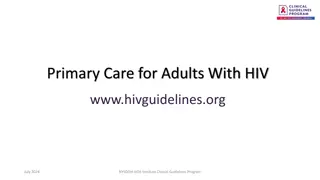Enhancing HIV Health Services for Re-Entering Inmates
Collaborating with correctional services to provide continuity of care for HIV-infected individuals re-entering Baltimore EMA, the program assigns inmates to sub-recipients for pre-release services and post-release support. Clients are monitored post-discharge for medical and social outcomes.
Download Presentation

Please find below an Image/Link to download the presentation.
The content on the website is provided AS IS for your information and personal use only. It may not be sold, licensed, or shared on other websites without obtaining consent from the author.If you encounter any issues during the download, it is possible that the publisher has removed the file from their server.
You are allowed to download the files provided on this website for personal or commercial use, subject to the condition that they are used lawfully. All files are the property of their respective owners.
The content on the website is provided AS IS for your information and personal use only. It may not be sold, licensed, or shared on other websites without obtaining consent from the author.
E N D
Presentation Transcript
RYAN WHITE GRANTEE PROGRAM OVERVIEW GREATER BALTIMORE HIV HEALTH SERVICES PLANNING COUNCIL MEETING May 16, 2017
In 2011,The Baltimore City Health Department initiated a collaboration with The Maryland State Division of corrections, Department of Public Safety and Correctional Services to promote the continuation of care for HIV-infected individuals that are re-entering into the Baltimore EMA. The Baltimore City Health Department funds sub-recipients under Part A Minority Aids Initiative grant
Sub-recipients provides pre-release services to inmates made known to the Department who will be releases up to 180 days prior to their release date. The sub- recipients will provide those persons being released from custody with medical, supportive and social services.
The Ryan White Grantee Program Manager assigns the inmate to one of the sub-recipients. Services are provided to the inmates based on their service needs and regardless of his or her housing location at the time of discharge. The MAI sub-recipient will conduct at least two pre-released visits with the inmates to initiate discharge planning
Clients are followed for at least two confirmed HIV related medical services appointments. Each assigned client that is successfully closed-out after six months, will be placed on retention monitoring for continued review of the clients viral load, and other supportive and social outcomes.
Referrals Retention Monitoring Assignments RWG 2nd PMC Visit follow-up Intake 1st PMC visit follow-up Discharge planning
Prisoners Reentering back into the Baltimore-Towson EMA 400 300 370 200 344 166 100 179 130 150 62 71 74 89 79 73 0 Clients Assigned Clients Released Clients Linked Clients w/ 2 Visits 2014 2015 2016 *2016 incomplete linked/2 visits
PARTNERS The Department of Health and Mental Hygiene Baltimore City Health Department, Prevention Wexford Health Baltimore Crisis and Prevention * Sub-recipients: Park West Health Systems Total Health Care John Hopkins HIV Women s Program University of Maryland Jacques Initiative Continually building new relationships in FY17 June, 2017*
The Ryan White Grantee team is aware of the barriers surrounding the person s released from incarceration and re-entering back into the community. There is a shared fellowship in the attitudes, interests, and goals for positive results. Major changes in one s lifestyle can be challenging and we find this more prevalent with persons who are HIV/AIDS infected and released from incarceration. Many persons who are transitioning back into the community are dually- diagnosed and homeless. While housed in a correctional facility, some inmates receive medical health care and are administered HIV/AIDS medications. Once released many PLWHA are faced with stigma and social issues from housing to medical nutrition.
FOR PARTNERSHIPSORMOREINFORMATION PLEASECONTACT: RENEE HUNT 410-396-1408 RENEE.HUNT@BALTIMORECITY.GOV BALTIMORE CITY HEALTH DEPARTMENT
